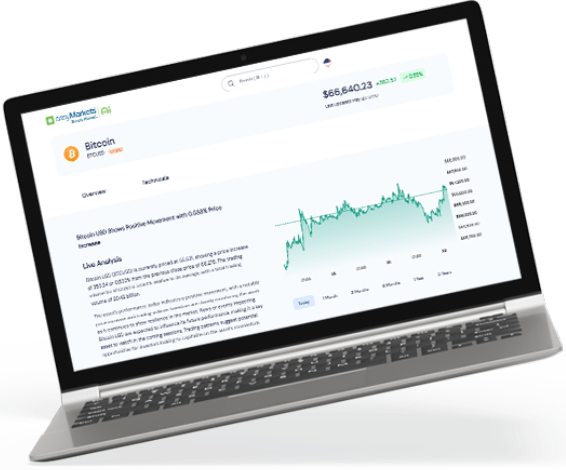Macroeconomic Factors that Move the Markets
The global markets are even more intertwined than ever. The health of one nation’s economy may severely impact the world’s markets.
Data announcements, geopolitical events and even bad weather in one corner of the globe may impact the financial markets to a large degree. Below we explain some of the key factors that influence economy in general and the financial markets specifically.
Geopolitical Factors
Geopolitical factors refer to political or geographic events that may move the markets. Civil unrest, an upcoming election and war are some examples where a country’s politics may impact the markets. Geo events include extreme weather conditions or earthquakes that might affect a country’s ability to produce and distribute their goods and services. Damages from these events would also require unforeseen expenditure to rebuild infrastructure. Trade may also be impacted by geopolitical events – a politically unstable country might not be considered a good trading partner. Changes in the political system may hold back the currency’s value until things have settled down and fiscal policy is announced. War or catastrophic events like tsunamis affect economic growth and again may depreciate the currency. Often the more developed a country, the quicker it may bounce back from unexpected events. The more mature markets can roll with the knocks. For emerging markets, these events can be devastating and negative effects may be felt for some time.
Supply & Demand
The value of a good and service is driven by supply and demand. Supply means how much of that good or service is available on the market, while demand implies how much buyers are wanting or purchasing that product or service. This is also true for currencies and other CFD markets. The law of supply and demand means that the higher the demand, the higher the price. Whereas a higher supply, will see a drop in price. In pair trading like in forex, the price of one currency is higher than the other, which means that it is in greater demand than its counter pair.
Balance of Payments
Traders follow the balance of trade reports as they may be a good indicator of both the economic health of a nation and especially their currency. When countries participate in international trade, they are exchanging goods and services and money is exchanged to make that happen. The level of international trade is an important indicator to the value of a country’s currency and how much it is in demand. A country imports (brings in) goods from other countries and exports (sends/sales out) their own good back to them. If they import more than they export their trade balance is in ‘deficit’ as they will be spending more of their money buying the currency of the country they are importing from rather than what they would receive via their exports. This will impact on the value of their currency especially against the currency of their trading partner. However, if they are in trade ‘surplus’, then their currency is in greater demand.
Industrial Production
Industrial production reports are important as they give data about the production coming out of the nation’s factories and mines. These figures also show to what extent these factories and mines are being utilized. A positive example would be for an increase in production as well as a full capacity of usage. These are good indicators to keep an eye on as large changes may lead to market volatility in that country.

Gross Domestic Product
A nation’s currency is often dictated by the overall health of its economy. Gross Domestic Product (GDP) is an important indicator of economic health as it represents the market value of goods and services produced annually by that country. It measures the spending by the nation’s government, consumers and international trade and investment and is announced quarterly or annually. A high GDP figure means the economy is strong, but a drop in GDP shows a weakening economy.
Interest Rates
Global currencies are intertwined with their country’s interest rates. As a general rule, as rates rise, so does the currency. Central banks leading the nation’s monetary policy a key influencers of interest rates and will use them as a way to control their currency’s value and inflation in general. A high rate of interest encourages people to invest their cash in that country and to do so they would need to convert to the local currency – leading to an increase in the value of the local currency. However, if inflation becomes too high as a result, it may drive the value of the currency lower.
Monetary Policy
As we know, central banks set the country’s fiscal policy to aim for economic growth. They focus on money supply, inflation and interest rates. This policy affects taxation, government spending and overall budget. The monetary policies set by these banks impact the market to a large extent which is why these are important announcements for traders to follow.
Retail Sales
Retail Sales report on how much people are spending in the specific country. Traders keep a watch out for these reports on either a quarterly or annual basis as it is an indicator on the overall health of a nation’s economy. Investors don’t just look at the actual number but at how much is has changed, positively or negatively, from the previous report. Retails sales are precursors to GDP reports and may indicate what we might see in that report. Strong sales mean consumer confidence and a loosening of the purse strings. Positive retails sales may mean an increase in the local currency.
Employment Data
Employment data is released on a regular basis and shows the percentage change of those in work. High employment versus unemployment rates shows a strong economy – people are earning and have spending power. However, high unemployment might see the central bank putting looking to cut interest rates to encourage the flow of money in the economy.
Economic Indicators
Traders follow financial calendars to ensure they don’t miss the release of relevant economic indicators that might signal a move in the markets. These reports are released at set dates and times and any changes to previous reports may lead to market volatility. Some of the most followed indicators, aside from those mentioned above, include: Unemployment Rate, Consumer Price Index (CPI), Producer Price Index (PPI), Purchasing Managers Index (PMI), and Home Sales and Housing Starts.














